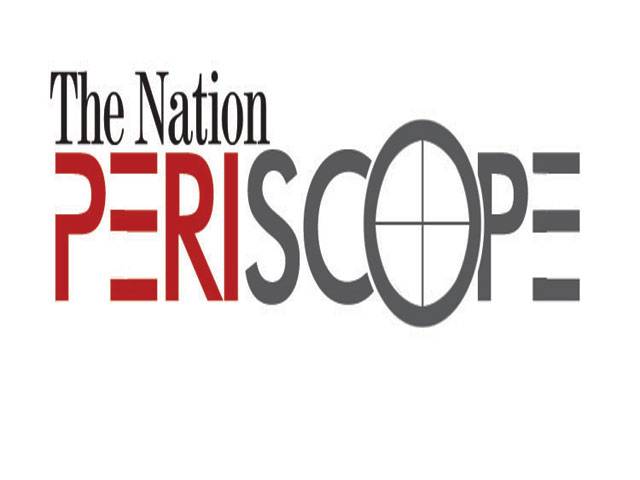Islamabad - The platelets of Nawaz Sharif never dropped to a life-threatening level. It’s all an elaborate hoax. The former prime minister is old and unwell — but not on the death bed. Some very close relatives and some officials of the shadowy deep state cobbled up a scheme to allow Mr Sharif to leave the country under the pretext of a grave medical emergency. The medical lab handling the medical tests of the former premier is part of this ingenious scheme and tampered with the results. Prime Minister Imran Khan was kept unaware of the “deal” and therefore decided to throw a spanner in the spooks by asking for an indemnity bond.
All the above is obviously just one of the several conspiracy theories doing the rounds in the federal and provincial capitals. The political windmill is churning full throttle all kinds of rumors and predictions of change. In a time of heightened political polarization and vendetta, facts mix seamlessly with fiction. People only believe what aligns with their political beliefs and preferences. Everything else is a lie, a conspiracy, and a ruse.
The illness of the former prime minister Nawaz Sharif had indeed upended the political landscape. For weeks, it became the single issue over which the country’s politics revolved. When Mr Sharif returned to Pakistan last year, along with his daughter Maryam Nawaz Sharif, he left behind a terminally ill Mrs Kulsoom Nawaz Sharif. Political opponents had mocked the illness of Mrs Kulsoom Nawaz Sharif at that time. Her death failed to shake the conscience of the detractors.
A similar situation was witnessed recently as questions over the intensity and gravity of the health situation of the former prime minister were raised repeatedly. It was an unfortunate turn of events. Why political opposition forces us to strip ourselves of the basics of humanity, empathy, and kindness? Why has Pakistani politics become so vicious and blood-thirsty? These queries demand a deep soul-searching by the political class and the electorate, especially the ‘educated, urban class.’
The alarming situation forced even the government allies to spring to action. Chaudhry Pervez Elahi, the former chief minister of Punjab and current speaker of the Punjab assembly, took to the television screens. Mr Elahi and his cousin Chaudhry Shujaat Hussain are experienced political hands. They know which way the political wind blows, and know the tact of aggressive and defensive posturing in politics. They advised Prime Minister Imran Khan to show flexibility and large-heartedness by allowing Mr Sharif to go abroad. No one wants blood on their hands, and the messaging by the Chaudhrys of Gujrat was not just an expression of their brand of politics. The Chairman Senate also urged the government to allow Mr Sharif to leave the country. It is well known who pats his back. Some construed these developments as a message forwarded by the Establishment.
Prime Minister Imran Khan had initially agreed to allow Mr Sharif to leave unconditionally, but he was soon held back by the hawks in his party. The narrative of PTI is even more potent than those who had initially formulated it. It is not letting the party officials re-calibrate and compromise. Showing flexibility is a weakness in their view. Part of it is due to the heady feeling one gets while in power. Life in the protected and protocol-heavy government residences and offices always skewed perceptions. Shifting political sands seem insignificant. The coterie of sycophants convinces the powerful that power will last forever, that no wrong step can ever be taken, and no lapse of judgment can ever happen. PTI leadership seems to be in the throes of the same affliction.
Prime Minister Khan has always defied skepticism and done the seemingly impossible. Some around him, therefore, advised him to stick to his guns. They felt that PTI could weather any political storm. The insistence on the indemnity bonds was a consequence of this thinking as the hawks wanted to limit the political fallout of the decision to let Mr Sharif go.
The well-wishers of the government and forewarners have spoken: focus on the economy and governance. Move past the political vendettas. The wish to make political opponents rub their noses on the floor is petty and unbecoming of those holding high offices. The country needs stability for economic progress. It cannot afford to be continuously rocked by spasms of political instability. The current imbroglio has brought everything to the edge of a cliff. It’s time to throw individual egos over the edge.
Most significantly, the current scenario has undercurrents of a different sort. The allies of the party are feeling uncomfortable and restless. The PTI government is erected on a very fragile base; its parliamentary majority is not ironclad. Any opportunity can be seized by the allies to increase their share in the pie. But some analysts are foreseeing political troubles far greater than just the greed of political allies. The usual firefighters, like Jahangir Tareen, are conspicuously quiet and absent from the front lines.
In this backdrop, the meeting between Army Chief Gen Qamar Javed Bajwa and Prime Minister Imran Khan on Friday assumed great significance. Both leaders publicly met after a long gap. Has the Army Chief put his weight behind the Prime Minister or expressed reservations with the government’s handling of the ongoing crisis. Coming days would answer this curiosity.
On Saturday, the Lahore High Court allowed Mr Sharif to leave the country for four weeks to attend to his medical condition. Meanwhile, Mr Khan has taken the weekend off. The ever so turbulent politics is taking a toll on everybody. Mr Khan is no exception.
After the 22-year political struggle to get to the prime minister’s office, Mr Khan is fast learning that governance is not a cakewalk. He will try to rejuvenate himself to return to work next week — and will immediately be confronted with a whole new set of challenges.






